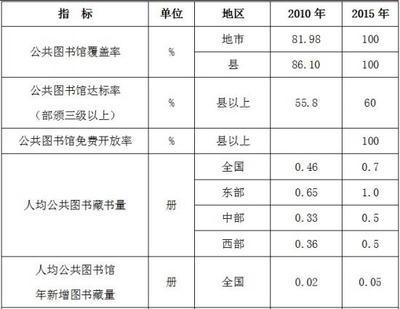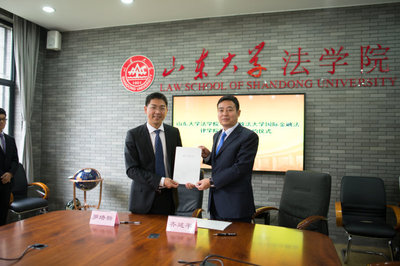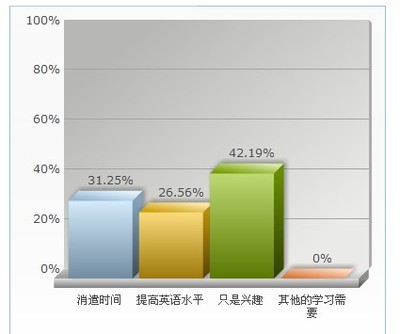WT/MIN(01)/DEC/2
关于TRIPS协议与公共健康的宣言
2001年11月14日
1.承认公共健康问题严重影响许多发展中国家和最不发达国家,特别是影响那些遭受艾滋病、结核病、疟疾和其它传染病的国家。
2.强调需要将WTO协议下的TRIPS协议作为国家的和国际社会的广泛举措中的一部分来解决这些问题。
3.承认知识产权保护对于发展新药的重要性,同时也承认对有关知识产权保护对价格所产生影响的关注。
4.同意TRIPS协议没有也不应当妨碍成员国为维护公共健康而采取措施。因此,在重申承担TRIPS协议所规定义务的同时,确认该协议能够也应当以一种有助于成员国维护公共健康的权利,特别是促进所有的人获得药品的权利的方式进行解释和实施。
在这一方面,重申WTO成员有权充分运用TRIPS协议中为此而给予灵活性的条款。
5.根据上述第4款,在维护TRIPS协议所规定的义务的同时,承认上述灵活措施包括:
a)应用国际法的习惯解释规则,TRIPS协议的每一条均应当根据协议所表达的目标和意图进行理解,特别是根据该协议规定的目标和原则来进行理解。
b)各成员国有权批准强制许可,并且可以自由决定批准强制许可的理由。
c)各成员国有权决定构成国家紧急状况或其它紧急情况的条件,可以理解公共健康危机,包括与艾滋病、结核病、疟疾以及其他传染病有关的危机,构成上述国家紧急状况或其它紧急情况。
d)在TRIPS协议第3条、第4条有关最惠国待遇和国民待遇原则的规定前提下,TRIPS协议中有关知识产权权利用尽的规定应当使各成员国能够自由地、不受干扰地建立其权利用尽体系。
6.承认其制药企业没有制造能力或制造能力不足的WTO成员国按照TRIPS协议的规定有效利用强制许可有可能会遇到困难。责成TRIPS理事会在2002年底前提出解决这一问题的方案并向WTO总理事会报告。
7.重申依照TRIPS协议66条2款的规定,发达国家成员有义务鼓励其企业和公共机构,促进向最不发达成员国家转让技术。关于药品,同意在2016年1月1日之前不强迫最不发达国家成员国家实施或适用TRIPS协议第二部分第5节和第7节的规定,同时不排除最不发达成员国寻求延长TRIPS协议第66条1款规定的过渡期。责成TRIPS委理事会采取必要措施,使之与TRIPS协议的第66条1款相容。
(张永华译 姜丹明校)
WT/MIN(01)/DEC/2
DECLARATION ON THE TRIPS AGREEMENT AND PUBLIC HEALTH
Adopted on 14 November 2001
1.We recognize the gravity of the public healthproblems afflicting many developing and least-developed countries,especially those resulting from HIV/AIDS, tuberculosis, malaria andother epidemics.
2.We stress the need for the WTO Agreement onTrade-Related Aspects of Intellectual Property Rights (TRIPSAgreement) to be part of the wider national and internationalaction to address these problems.
3.We recognize that intellectual propertyprotection is important for the development of newmedicines. We also recognize the concerns aboutits effects on prices.
4.We agree that the TRIPS Agreement does notand should not prevent Members from taking measures to protectpublic health. Accordingly, while reiterating ourcommitment to the TRIPS Agreement, we affirm that the Agreement canand should be interpreted and implemented in a manner supportive ofWTO Members' right to protect public health and, in particular, topromote access to medicines for all.
In this connection, we reaffirm the right ofWTO Members to use, to the full, the provisions in the TRIPSAgreement, which provide flexibility for this purpose.
5.Accordingly and in the light of paragraph 4above, while maintaining our commitments in the TRIPS Agreement, werecognize that these flexibilities include:
(a)In applying the customary rules ofinterpretation of public international law, each provision of theTRIPS Agreement shall be read in the light of the object andpurpose of the Agreement as expressed, in particular, in itsobjectives and principles.
(a)Each Member has the right to grant compulsorylicences and the freedom to determine the grounds upon which suchlicences are granted.
(a)Each Member has the right to determine whatconstitutes a national emergency or other circumstances of extremeurgency, it being understood that public health crises, includingthose relating to HIV/AIDS, tuberculosis, malaria and otherepidemics, can represent a national emergency or othercircumstances of extreme urgency.
(a)The effect of the provisions in the TRIPSAgreement that are relevant to the exhaustion of intellectualproperty rights is to leave each Member free to establish its ownregime for such exhaustion without challenge, subject to the MFNand national treatment provisions of Articles 3 and 4.
6.We recognize that WTO Members withinsufficient or no manufacturing capacities in the pharmaceuticalsector could face difficulties in making effective use ofcompulsory licensing under the TRIPS Agreement.We instruct the Council for TRIPS to find an expeditious solutionto this problem and to report to the General Council before the endof 2002.
7.We reaffirm the commitment ofdeveloped-country Members to provide incentives to theirenterprises and institutions to promote and encourage technologytransfer to least-developed country Members pursuant to Article66.2. We also agree that the least-developedcountry Members will not be obliged, with respect to pharmaceuticalproducts, to implement or apply Sections 5 and 7 of Part II of theTRIPS Agreement or to enforce rights provided for under theseSections until 1 January 2016, without prejudice to the right ofleast-developed country Members to seek other extensions of thetransition periods as provided for in Article 66.1 of the TRIPSAgreement. We instruct the Council for TRIPS totake the necessary action to give effect to this pursuant toArticle 66.1 of the TRIPS Agreement.
2007-09-20
 爱华网
爱华网


